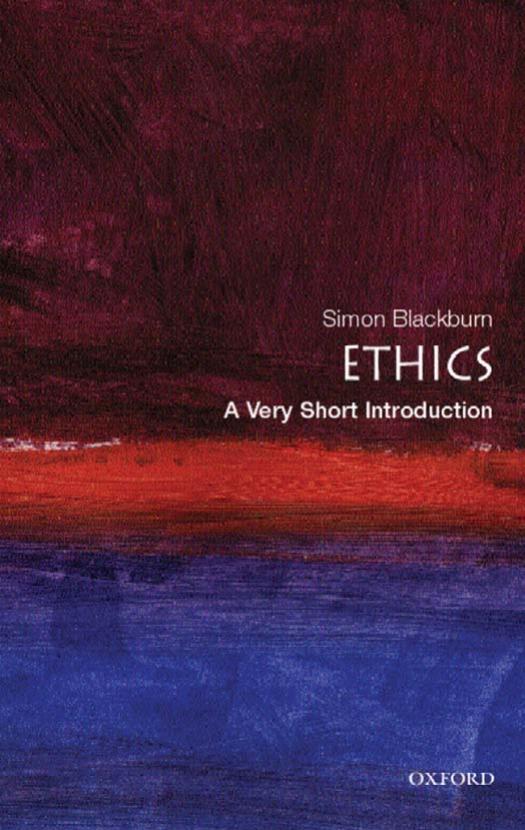Ethics: A Very Short Introduction by Simon Blackburn

Author:Simon Blackburn
Language: eng
Format: epub, pdf
Publisher: OUP Oxford
Published: 2001-08-14T16:00:00+00:00
10. Desire and the meaning of life
Some moralists counsel that ‘authentic’ living means not just remembering that one day you will die, but somehow living in constant awareness of that fact, ‘living-unto-death’. The poet John Donne even had his own portrait painted wearing his shroud, hopefully anticipating the way he would look at the Last Judgement. Most of us, however, don’t find Donne’s preoccupation particularly healthy. In fact, the mood only prevails in conditions of social instability or political impotence, corresponding to the fashion for pessimism and suicide among the intelligentsia. And it is hard to argue with a mood. Perhaps if the poet is half in love with easeful death, or sickened by the human carnival, he needs a change of government, or a tonic, or a holiday, rather than an argument.
The mood that obsesses over death can fall into peril of inconsistency. It is inconsistent to urge, for instance, both that death is perfectly all right, even a luxury, in itself, but that one thing that makes life meaningless and delusive is that it ends in death. For why is that a problem, if death is itself enviable?
Although the Stoics argued that death was not to be feared, they were not themselves cheerleaders for a morbid preoccupation with it. Rather, as the modern application of their name implies, theirs was a message of fortitude and resignation, or of fatalism in the face of the inevitable unfolding of events. Their attitude is entrenched in one of the popular connotations of the word ‘philosophy’ itself, as in one person’s comment on the misfortune of another: ‘You’ve got to be philosophical – just don’t think about it.’ P. G. Wodehouse probably had the last word on this aspect of the Stoics. Jeeves is consoling Bertie:
‘I wonder if I might call your attention to an observation of the Emperor Marcus Aurelius. He said: “Does aught befall you? It is good. It is part of the destiny of the Universe ordained for you from the beginning. All that befalls you is part of the great web.” ’
I breathed a bit stertorously.
‘He said that, did he?’
‘Yes, sir.’
‘Well you can tell him from me he’s an ass. Are my things packed?’
As Bertie judiciously remarks later: ‘I doubt, as a matter of fact, if Marcus Aurelius’s material is ever the stuff to give the troops at a moment when they have just stubbed their toe on the brick of Fate. You want to wait till the agony has abated.’
Philosophers and poets who try to reconcile us to death usually do so not by arguments as terse as the Stoics’, nor by Stoical fatalism, but on the contrary by moaning about life itself. We have all heard the woeful refrain. The human world is nothing but strife, disorder, and instability. Life is wearisome, a burden. Its hopes are delusive, its enjoyments are hollow. Desire is infinite and restless; gratification brings no peace. Carpe diem (seize the day) – but you cannot seize the day, for it vanishes into the past as you try.
Download
Ethics: A Very Short Introduction by Simon Blackburn.pdf
This site does not store any files on its server. We only index and link to content provided by other sites. Please contact the content providers to delete copyright contents if any and email us, we'll remove relevant links or contents immediately.
The 5 Love Languages: The Secret to Love That Lasts by Gary Chapman(8489)
The Space Between by Michelle L. Teichman(6085)
Assassin’s Fate by Robin Hobb(5235)
Wiseguy by Nicholas Pileggi(4585)
Everything Happens for a Reason by Kate Bowler(4067)
Gerald's Game by Stephen King(3916)
A Simplified Life by Emily Ley(3567)
The Power of Positive Thinking by Norman Vincent Peale(3446)
Pillow Thoughts by Courtney Peppernell(3390)
Resisting Happiness by Matthew Kelly(2885)
Girl, Wash Your Face by Rachel Hollis(2819)
Being Aware of Being Aware by Rupert Spira(2704)
Name Book, The: Over 10,000 Names--Their Meanings, Origins, and Spiritual Significance by Astoria Dorothy(2490)
Real Sex by Lauren F. Winner(2473)
More Language of Letting Go: 366 New Daily Meditations by Melody Beattie(2441)
The Holy Spirit by Billy Graham(2413)
Fast Facts on Defending Your Faith by John Ankerberg & John Weldon(2387)
Victory over the Darkness by Neil T. Anderson(2384)
The Secret Power of Speaking God's Word by Joyce Meyer(2250)
